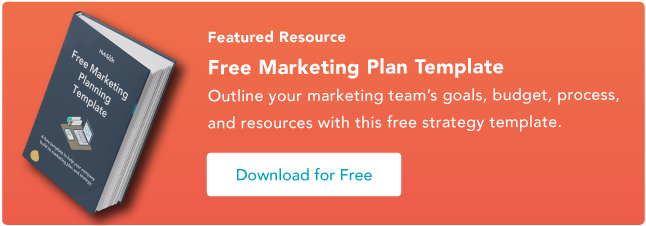For a while now, you‘ve been spearheading your organization’s content marketing efforts. Your team’s performance has convinced management to adopt the content marketing strategies you’ve suggested.
Now, your boss wants you to write and present a content marketing plan, but you‘ve never done something like that before. You don’t even know where to start.
Fortunately, we‘ve curated the best content marketing plans to help you write a concrete plan that’s rooted in data and produces results. But first, we’ll discuss what a marketing plan is and how some of the best marketing plans include strategies that serve their respective businesses.
The purpose of a marketing plan is to write down strategies in an organized manner. This will help keep you on track and measure the success of your campaigns.
Writing a marketing plan will help you think of each campaign‘s mission, buyer personas, budget, tactics, and deliverables. With all this information in one place, you’ll have an easier time staying on track with a campaign. You’ll also discover what works and what doesn’t. Thus, measuring the success of your strategy.
Featured Resource: Free Marketing Plan Template
Looking to develop a marketing plan for your business? Click here to download HubSpot’s free Marketing Plan Template to get started.
To learn more about how to create your marketing plan, keep reading or jump to the section you’re looking for:
- How to Write a Marketing Plan
- Types of Marketing Plans
- Marketing Plan Examples
- Marketing Plan FAQs
- Sample Marketing Plan
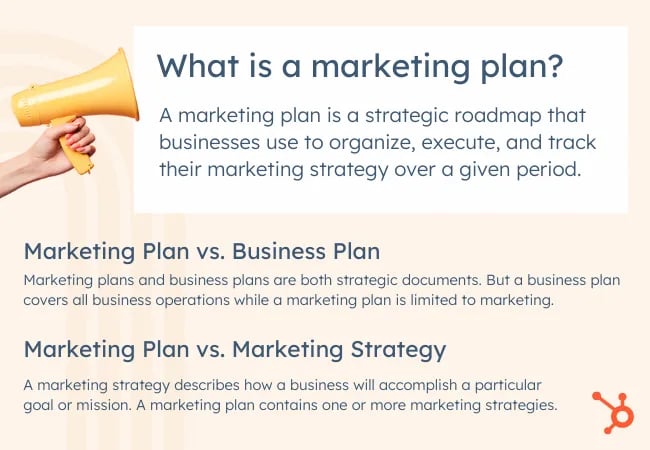
If you’re pressed for time or resources, you might not be thinking about a marketing plan. But a marketing plan is an important part of your business plan.
Marketing Plan vs. Business Plan
A marketing plan is a strategic document that outlines marketing objectives, strategies, and tactics.
A business plan is also a strategic document. But this plan covers all aspects of a company’s operations, including finance, operations, and more. It can also help your business decide how to distribute resources and make decisions as your business grows.
A marketing plan is an important subset of a business plan that shows how marketing strategies and objectives can support overall business goals.
Keep in mind that there’s a difference between a marketing plan and a marketing strategy.
Marketing Strategy vs. Marketing Plan
A marketing strategy describes how a business will accomplish a particular goal or mission. This includes which campaigns, content, channels, and marketing software they’ll use to execute that mission and track its success.
For example, while a greater plan or department might handle social media marketing, you might consider your work on Facebook as an individual marketing strategy.
A marketing plan contains one or more marketing strategies. It’s the framework from which all of your marketing strategies are created and helps you connect each strategy back to a larger marketing operation and business goal.
For example, your company is launching a new software product, and it wants customers to sign up. This calls for the marketing department to develop a marketing plan that’ll help introduce this product to the industry and drive the desired signups.
The department decides to launch a blog dedicated to this industry, a new YouTube video series to establish expertise, and an account on Twitter to join the conversation around this subject. All this serves to attract an audience and convert this audience into software users.
To summarize, the business’s marketing plan is dedicated to introducing a new software product to the marketplace and driving signups for that product. The business will execute that plan with three marketing strategies: a new industry blog, a YouTube video series, and a Twitter account.
Of course, the business might consider these three things one giant marketing strategy, each with its specific content strategies. How granular you want your marketing plan to get is up to you. Nonetheless, every marketing plan goes through a particular set of steps in its creation.
Learn what they are below.
1. State your business’s mission.
Your first step in writing a marketing plan is to state your mission. Although this mission is specific to your marketing department, it should serve your business‘s main mission statement. Be specific, but not too specific. You have plenty of space left in this marketing plan to elaborate on how you’ll acquire new customers and accomplish this mission.
For example, if your business’s mission is “to make booking travel a delightful experience,” your marketing mission might be “to attract an audience of travelers, educate them on the tourism industry, and convert them into users of our bookings platform.”
Need help building your mission statement? Download this guide for examples and templates and write the ideal mission statement.
2. Determine the KPIs for this mission.
Every good marketing plan describes how the department will track its mission‘s progress. To do so, you’ll need to decide on your key performance indicators (KPIs). KPIs are individual metrics that measure the various elements of a marketing campaign. These units help you establish short-term goals within your mission and communicate your progress to business leaders.
Let’s take our example of a marketing mission from the above step. If part of our mission is “to attract an audience of travelers,” we might track website visits using organic page views. In this case, “organic page views” is one KPI, and we can see our number of page views grow over time.
These KPIs will come into the conversation again in step 4.
3. Identify your buyer personas.
A buyer persona is a description of who you want to attract. This can include age, sex, location, family size, and job title. Each buyer persona should directly reflect your business’s current and potential customers. So, all business leaders must agree on your buyer personas.
Create your buyer personas with this free guide and set of buyer persona templates.
4. Describe your content initiatives and strategies.
Here‘s where you’ll include the main points of your marketing and content strategy. Because there is a laundry list of content types and channels available to you today, you must choose wisely and explain how you’ll use your content and channels in this section of your marketing plan.
A content strategy should stipulate:
- Which types of content you’ll create. These can include blog posts, YouTube videos, infographics, and ebooks.
- How much of it you’ll create. You can describe content volume in daily, weekly, monthly, or even quarterly intervals. It all depends on your workflow and the short-term goals you set for your content.
- The goals (and KPIs) you’ll use to track each type. KPIs can include organic traffic, social media traffic, email traffic, and referral traffic. Your goals should also include which pages you want to drive that traffic to, such as product pages, blog pages, or landing pages.
- The channels on which you’ll distribute this content. Popular channels at your disposal include Facebook, Twitter, LinkedIn, YouTube, Pinterest, and Instagram.
- Any paid advertising that will take place on these channels.
5. Clearly define your plan’s omissions.
A marketing plan explains the marketing team’s focus. It also explains what the marketing team will not focus on.
If there are other aspects of your business that you aren‘t serving in this particular plan, include them in this section. These omissions help to justify your mission, buyer personas, KPIs, and content. You can’t please everyone in a single marketing campaign, and if your team isn’t on the hook for something, you need to make it known.
6. Define your marketing budget.
Your content strategy might use many free channels and platforms, but there are several hidden expenses a marketing team needs to account for.
Whether it’s freelance fees, sponsorships, or a new full-time marketing hire, use these costs to develop a marketing budget and outline each expense in this section of your marketing plan.
You can establish your marketing budget with this kit of 8 free marketing budget templates.
7. Identify your competition.
Part of marketing is knowing whom you’re marketing against. Research the key players in your industry and consider profiling each one.
Keep in mind not every competitor will pose the same challenges to your business. For example, while one competitor might be ranking highly on search engines for keywords you want your website to rank for, another competitor might have a heavy footprint on a social network where you plan to launch an account.
Easily track and analyze your competitors with this collection of ten free competitive analysis templates.
8. Outline your plan’s contributors and their responsibilities.
With your marketing plan fully fleshed out, it‘s time to explain who’s doing what. You don‘t have to delve too deeply into your employees’ day-to-day projects, but it should be known which teams and team leaders are in charge of specific content types, channels, KPIs, and more.
Now that you know why you need to build an effective marketing plan, it’s time to get to work. Starting a plan from scratch can be overwhelming if you haven’t done it before. That’s why there are many helpful resources that can support your first steps. We’ll share some of the best guides and templates that can help you build effective results-driven plans for your marketing strategies.
Ready to make your own marketing plan? Get started using this free template.
Types of Marketing Plans
Depending on the company you work with, you might want to create various marketing plans. We compiled different samples to suit your needs:
1. Quarterly or Annual Marketing Plans
These plans highlight the strategies or campaigns you’ll take on in a certain period.

Forbes published a marketing plan template that has amassed almost 4 million views. To help you sculpt a marketing roadmap with true vision, their template will teach you how to fill out the 15 key sections of a marketing plan, which are:
- Executive Summary
- Target Customers
- Unique Selling Proposition
- Pricing & Positioning Strategy
- Distribution Plan
- Your Offers
- Marketing Materials
- Promotions Strategy
- Online Marketing Strategy
- Conversion Strategy
- Joint Ventures & Partnerships
- Referral Strategy
- Strategy for Increasing Transaction Prices
- Retention Strategy
- Financial Projections
If you’re truly lost on where to start with a marketing plan, this guide can help you define your target audience, figure out how to reach them, and ensure that audience becomes loyal customers.
2. Social Media Marketing Plan
This type of plan highlights the channels, tactics, and campaigns you intend to accomplish specifically on social media. A specific subtype is a paid marketing plan, which highlights paid strategies, such as native advertising, PPC, or paid social media promotions.
Shane Snow’s Marketing Plan for His Book Dream Team is a great example of a social media marketing plan
A successful book launch is a prime example of data-driven content and social marketing. Using data to optimize your social strategy spreads more awareness for your book, gets more people to subscribe to your content, converts more subscribers into buyers, and encourages more buyers to recommend your book to their friends.
When Shane Snow started promoting his new book, “Dream Team,” he knew he had to leverage a data-driven content strategy framework. So, he chose his favorite one: the content strategy waterfall. The content strategy waterfall is defined by Economic Times as a model used to create a system with a linear and sequential approach. To get a better idea of what this means, take a look at the diagram below:
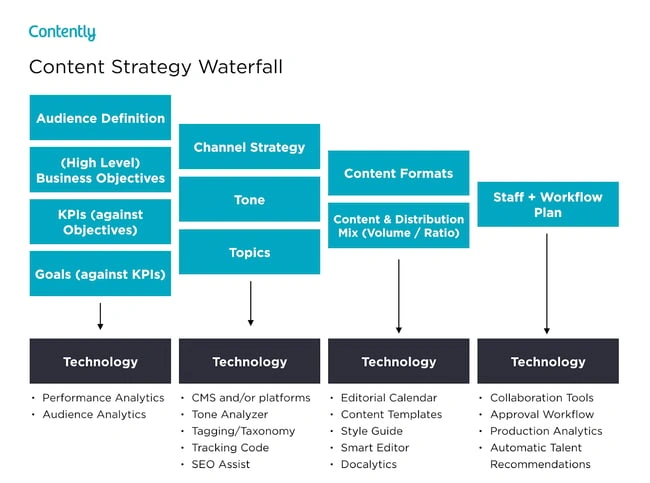
Snow wrote a blog post about how the waterfall‘s content strategy helped him launch his new book successfully. After reading it, you can use his tactics to inform your own marketing plan. More specifically, you’ll learn how he:
- Applied his business objectives to decide which marketing metrics to track.
- Used his ultimate business goal of earning $200,000 in sales or 10,000 purchases to estimate the conversion rate of each stage of his funnel.
- Created buyer personas to figure out which channels his audience would prefer to consume his content.
- Used his average post view on each of his marketing channels to estimate how much content he had to create and how often he had to post on social media.
- Calculated how much earned and paid media could cut down the amount of content he had to create and post.
- Designed his process and workflow, built his team, and assigned members to tasks.
- Analyzed content performance metrics to refine his overall content strategy.
You can use Snow’s marketing plan to cultivate a better content strategy plan, know your audience better, and think creatively about content promotion and distribution.
3. Content Marketing Plan
This plan could highlight different strategies, tactics, and campaigns in which you’ll use content to promote your business or product.
HubSpot’s Comprehensive Guide for Content Marketing Strategy is a strong example of a content marketing plan:
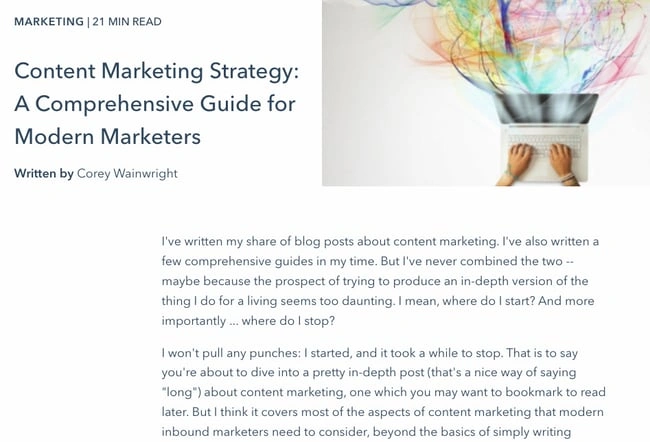
At HubSpot, we‘ve built our marketing team from two business school graduates working from a coffee table to a powerhouse of hundreds of employees. Along the way, we’ve learned countless lessons that shaped our current content marketing strategy. So, we decided to illustrate our insights in a blog post to teach marketers how to develop a successful content marketing strategy, regardless of their team’s size.
In this comprehensive guide for modern marketers, you’ll learn:
- What exactly content marketing is.
- Why your business needs a content marketing strategy.
- Who should lead your content marketing efforts?
- How to structure your content marketing team based on your company’s size.
- How to hire the right people for each role on your team.
- What marketing tools and technology you’ll need to succeed.
- What type of content your team should create, and which employees should be responsible for creating them.
- The importance of distributing your content through search engines, social media, email, and paid ads.
- And finally, the recommended metrics each of your teams should measure and report to optimize your content marketing program.
4. New Product Launch Marketing Plan
This will be a roadmap for the strategies and tactics you‘ll implement to promote a new product. And if you’re searching for an example, look no further than Chief Outsiders’ Go-To-Market Plan for a New Product:
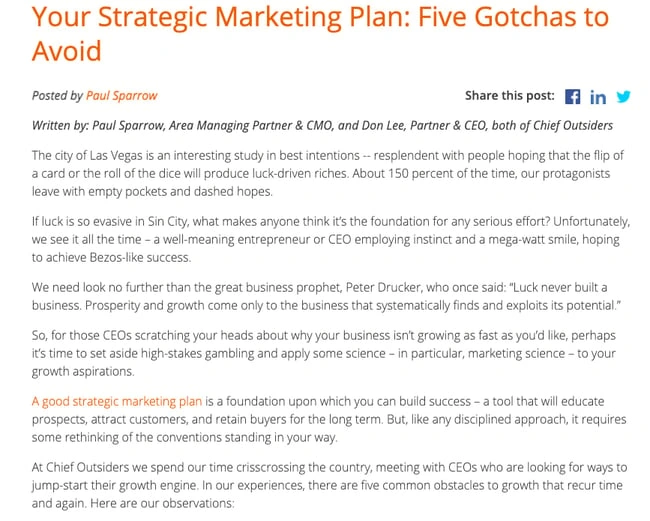
When you’re looking for a marketing plan for a new product, the Chief Outsiders template is a great place to start. Marketing plans for a new product will be more specific because they target one product versus its entire marketing strategy.
After reading this plan, you’ll learn how to:
- Validate a product
- Write strategic objectives
- Identify your market
- Compile a competitive landscape
- Create a value proposition for a new product
- Consider sales and service in your marketing plan
5. Growth Marketing Plan
Growth marketing plans use experimentation and data to drive results, like we see in Venture Harbour’s Growth Marketing Plan Template:
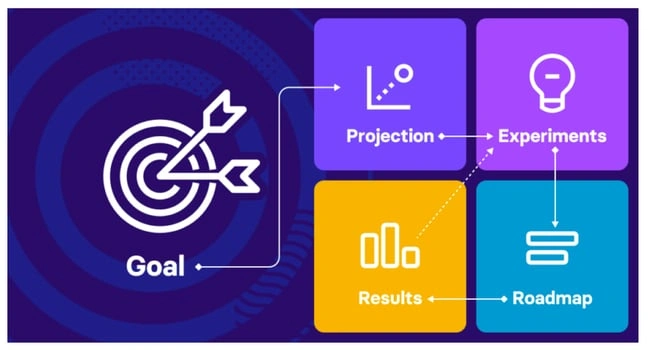
Venture Harbour’s growth marketing plan is a data-driven and experiment-led alternative to the more traditional marketing plan. Their template has five steps intended for refinement with every test-measure-learn cycle. The five steps are:
- Goal
- Projection
- Experiments
- Roadmap
- Insights
This is a great option if you want to experiment with different platforms and campaigns.
1. Visit Oxnard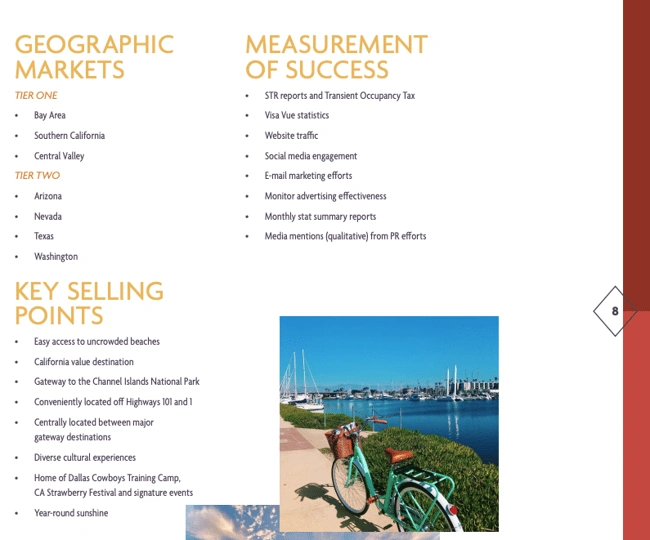
This marketing plan by Visit Oxnard, a convention and visitors bureau, is packed with all the information one needs in a marketing plan: target markets, key performance indicators, selling points, personas, marketing tactics by channel, and much more.
It also articulates the organization’s strategic plans for the upcoming fiscal year, especially as it grapples with the aftereffects of the pandemic. Lastly, it has impeccable visual appeal, with color-coded sections and strong branding elements.
Why This Marketing Plan Works
- States clear and actionable goals for the coming year
- Includes data and other research that shows how their team made their decisions
- Outlines how the team will measure the success of their plan
2. Safe Haven Family Shelter
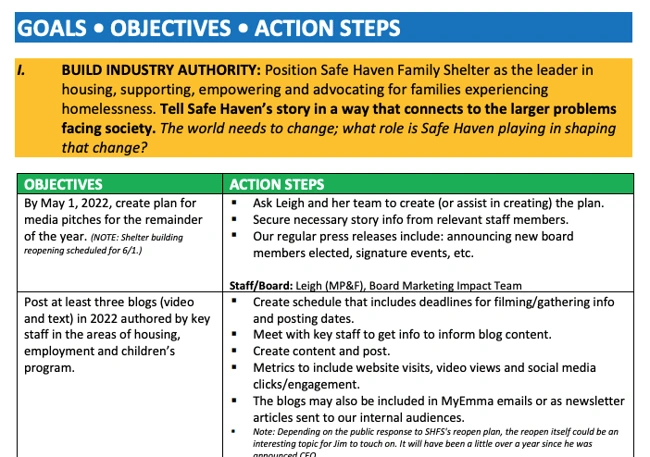
This marketing plan by a nonprofit organization is an excellent example to follow if your plan will be presented to internal stakeholders at all levels of your organization. It includes SMART marketing goals, deadlines, action steps, long-term objectives, target audiences, core marketing messages, and metrics.
The plan is detailed, yet scannable. By the end of it, one can walk away with a strong understanding of the organization’s strategic direction for its upcoming marketing efforts.
Why This Marketing Plan Works
- Confirms ongoing marketing strategies and objectives while introducing new initiatives
- Uses colors, fonts, and formatting to emphasize key parts of the plan
- Closes with long-term goals, key themes, and other overarching topics to set the stage for the future
3. Wright County Economic Development
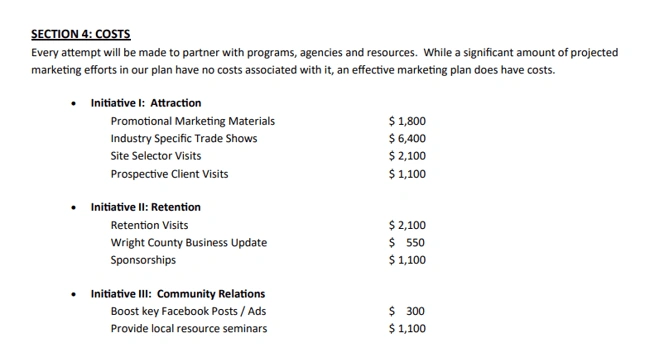
Wright County Economic Development’s plan drew our attention because of its simplicity, making it good inspiration for those who’d like to outline their plan in broad strokes without frills or filler.
It includes key information such as marketing partners, goals, initiatives, and costs. The sections are easy to scan and contain plenty of information for those who’d like to dig into the details. Most important, it includes a detailed breakdown of projected costs per marketing initiative — which is critical information to include for upper-level managers and other stakeholders.
Why This Marketing Plan Works
- Begins with a quick paragraph stating why the recommended changes are important
- Uses clear graphics and bullet points to emphasize key points
- Includes specific budget data to support decision-making
4. The Cultural Council of Palm Beach County
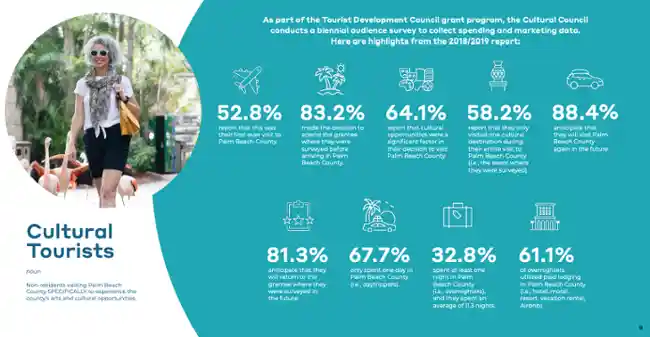
This marketing plan presentation by a cultural council is a great example of how to effectively use data in your plan, address audiences who are new to the industry, and offer extensive detail into specific marketing strategies.
For instance, an entire slide is dedicated to the county’s cultural tourism trends, and at the beginning of the presentation, the organization explains what an arts and culture agency is in the first place.
That’s a critical piece of information to include for those who might not know. If you’re addressing audiences outside your industry, consider defining terms at the beginning, like this organization did.
Why This Marketing Plan Works
- Uses quality design and images to support the goals and priorities in the text
- Separate pages for each big idea or new strategy
- Includes sections for awards and accomplishments to show how the marketing plan supports wider business goals
- Defines strategies and tactics for each channel for easy skimming
5. Cabarrus County Convention & Visitors Bureau
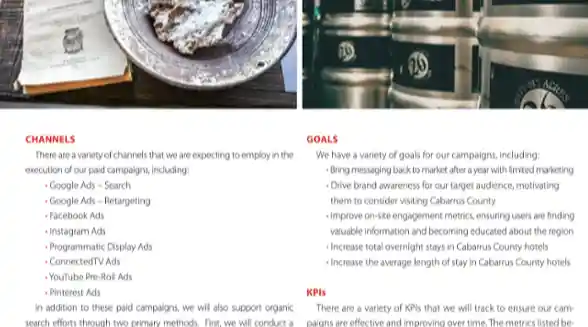
Cabarrus County’s convention and visitors bureau takes a slightly different approach with its marketing plan, formatting it like a magazine for stakeholders to flip through. It offers information on the county’s target audience, channels, goals, KPIs, and public relations strategies and initiatives.
We especially love that the plan includes contact information for the bureau’s staff members, so that it’s easy for stakeholders to contact the appropriate person for a specific query.
Why This Marketing Plan Works
- Uses infographics to expand on specific concepts, like how visitors benefit a community
- Highlights the team members responsible for each initiative with a photo to emphasize accountability and community
- Closes with an event calendar for transparency into key dates for events
6. Visit Billings

Visit Billing’s comprehensive marketing plan is like Cabarrus County’s in that it follows a magazine format. With sections for each planned strategy, it offers a wealth of information and depth for internal stakeholders and potential investors.
We especially love its content strategy section, where it details the organization’s prior efforts and current objectives for each content platform.
At the end, it includes strategic goals and budgets — a good move to imitate if your primary audience would not need this information highlighted at the forefront.
Why This Marketing Plan Works
- Includes a section on the buyer journey, which offers clarity on the reasoning for marketing plan decisions
- Design includes call-outs for special topics that could impact the marketing audience, such as safety concerns or “staycations”
- Clear headings make it easy to scan this comprehensive report and make note of sections a reader may want to return to for more detail
Marketing Plan FAQs
What is a typical marketing plan?
Most marketing plans are documents that outline the following aspects of a business’s marketing:
- Strategies
- Objectives
- Target audience
- Tactics
Each marketing plan should include one or more goals, the path your team will take to meet those goals, and how you plan to measure success.
For example, say a tech startup is launching a new mobile app. Its marketing plan would usually include:
- Target audience or buyer personas for the app
- Outline of how app features meet audience needs
- Competitive analysis
- Goals for conversion funnel and user acquisition
- Marketing strategies and tactics for user acquisition
Featured resource: Free Marketing Plan Template
What should a good marketing plan include?
A good marketing plan will create a clear roadmap for your unique marketing team. This means that the best marketing plan for your business will be distinct to your team and business needs.
That said, most marketing plans will include sections for one or more of the following:
- Clear analysis of the target market
- A detailed description of the product or service
- Competitive analysis
- Strategic marketing mix details (such as product, price, place, promotion)
- Measurable goals with defined timelines
This can help you build the best marketing plan for your business.
A good marketing plan should also include a product or service’s unique value proposition, a comprehensive marketing strategy including online and offline channels, and a defined budget.
Featured resource: Value Proposition Templates
What are the most important parts of a marketing plan?
When you‘re planning a road trip, you need a map to help define your route, step-by-step directions, and an estimate of the time it will take to get to your destination. It’s literally how you get there that matters.
Like a road map, a marketing plan is only useful if it helps you get to where you want to go. So, no one part is more than the other.
That said, you can use the list below to make sure that you’ve added or at least considered each of the following in your marketing plan:
- Marketing goals
- Executive summary
- Target market analysis
- Competitive analysis
- Marketing strategies
- Tactics
- Budget
- Metrics
What questions should I ask when making a marketing plan?
Questions are a useful tool for when you‘re stuck or want to make sure you’ve included important details.
Try using one or more of these questions as a starting point when you create your marketing plan:
- Who is my target audience?
- What are their needs, motivations, and pain points?
- How does our product or service solve their problems?
- How will I reach and engage them?
- Who are my competitors? Are they direct or indirect competitors?
- What are the unique selling points of my product or service?
- What marketing channels are best for the brand?
- What is our budget and timeline?
- How will I measure the success of marketing efforts?
How much does a marketing plan cost?
Creating a marketing plan is mostly free. But the cost of executing a marketing plan will depend on your specific plan.
Marketing plan costs vary by business, industry, and plan scope. Whether your team handles marketing in-house or hires external consultants can also make a difference. Total costs can range from a few thousand dollars to tens of thousands. This is why most marketing plans will include a budget.
Featured resource: Free Marketing Budget Templates
What is a marketing plan template?
A marketing plan template is a pre-designed structure or framework that helps you outline your marketing plan.
It offers a starting point that you can customize for your specific business needs and goals. For example, our template includes easy-to-edit sections for:
- Business summary
- Business initiatives
- Target market
- Market strategy
- Budget
- Marketing channels
- Marketing technology
Sample Marketing Plan
Let’s create a sample plan together, step by step.
Follow along with HubSpot’s free Marketing Plan Template.
1. Create an overview or primary objective.
Our business mission is to provide [service, product, solution] to help [audience] reach their [financial, educational, business related] goals without compromising their [your audience’s valuable asset: free time, mental health, budget, etc.]. We want to improve our social media presence while nurturing our relationships with collaborators and clients.
2. Determine the KPIs for this mission.
For example, if you wanted to focus on social media growth, your KPIs might look like this.
We want to achieve a minimum of [followers] with an engagement rate of [X] on [social media platform].
The goal is to achieve an increase of [Y] on recurring clients and new meaningful connections outside the platform by the end of the year.
3. Identify your buyer personas.
Use the following categories to create a target audience for your campaign.
- Age:
- Gender:
- Profession:
- Background:
- Interests:
- Values:
- Goals:
- Pain points:
- Social media platforms that they use:
- Streaming platforms that they prefer:
For more useful strategies, consider creating a buyer persona in our Make My Persona tool.
4. Describe your content initiatives and strategies.
Our content pillars will be: [X, Y, Z].
Content pillars should be based on topics your audience needs to know. If your ideal clients are female entrepreneurs, then your content pillars can be: marketing, being a woman in business, remote working, and productivity hacks for entrepreneurs.
Then, determine your omissions.
This marketing plan won’t be focusing on the following areas of improvement: [A, B, C].
5. Define your marketing budget.
Our marketing strategy will use a total of [Y] monthly. This will include anything from freelance collaborations to advertising.
6. Identify your competitors.
Use the following questions to clearly indicate who your competitors are:
- Which platforms do they use the most?
- How does their branding differentiate?
- How do they talk to their audiences?
- What valuable assets do customers talk about? And if they are receiving any negative feedback, what is it about?
7. Outline your plan’s contributors and their responsibilities.
Create responsible parties for each portion of the plan.
Marketing will manage the content plan, implementation, and community interaction to reach the KPIs.
- Social media manager: [hours per week dedicated to the project, responsibilities, team communication requirements, expectations]
- Content strategist: [hours per week dedicated to the project, responsibilities, team communication requirements, expectations]
- Community manager: [hours per week dedicated to the project, responsibilities, team communication requirements, expectations]
Sales will follow the line of the marketing work while creating and implementing an outreach strategy.
- Sales strategists: [hours per week dedicated to the project, responsibilities, team communication requirements, expectations]
- Sales executives: [hours per week dedicated to the project, responsibilities, team communication requirements, expectations]
Customer Service will nurture clients’ relationships to ensure that they have what they want. [Hours per week dedicated to the project, responsibilities, team communication requirements, expectations].
Project Managers will track the progress and team communication during the project. [Hours per week dedicated to the project, responsibilities, team communication requirements, expectations].
Get started on your marketing plan.
These marketing plans serve as initial resources to get your content marketing plan started. But, to truly deliver what your audience wants and needs, you’ll likely need to test some different ideas out, measure their success, and then refine your goals as you go.
Editor’s Note: This post was originally published in April 2019, but was updated for comprehensiveness. This article was written by a human, but our team uses AI in our editorial process. Check out our full disclosure to learn more about how we use AI.
![]()

![Download Now: Free Marketing Plan Template [Get Your Copy]](https://i4lead.com/wp-content/uploads/2023/07/aacfe6c7-71e6-4f49-979f-76099062afa0-1.png)
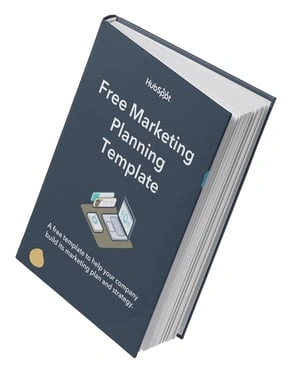

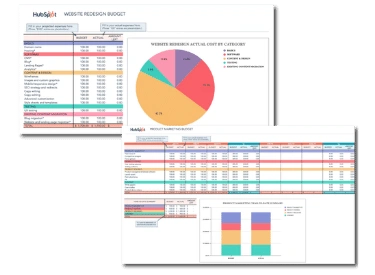
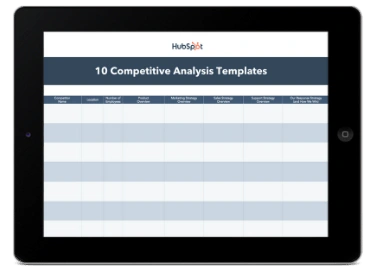
![→ Free Download: Social Media Calendar Template [Access Now]](https://i4lead.com/wp-content/uploads/2023/07/3e56e15d-47bd-46c9-a256-99fde52abfe7.png)

![→ Download Now: Free Product Marketing Kit [Free Templates]](https://i4lead.com/wp-content/uploads/2023/07/08b5e1f4-5d26-405b-b986-29c99bd0cb14.png)

